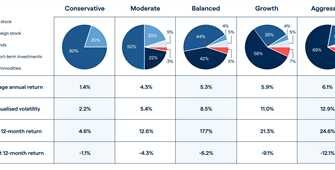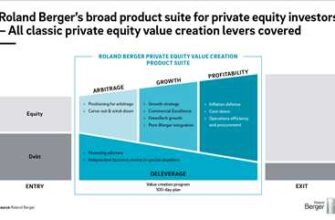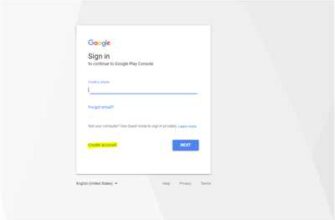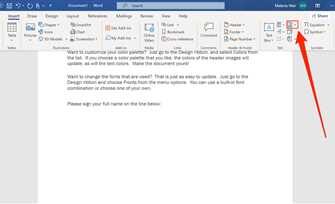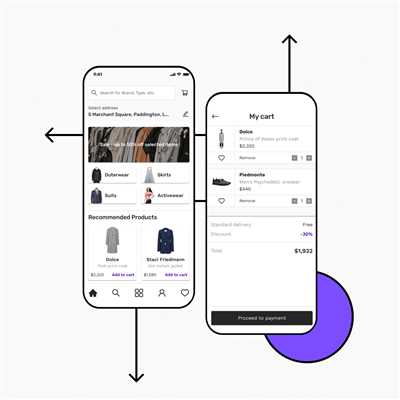
Creating an Android app can be an exciting and rewarding experience. With the variety of platforms and tools available, even individuals with no coding experience can build their own app. Whether you’re planning to create an app for your enterprise or distribute it to the world, app creators provide the necessary tools and resources to help you succeed.
One of the biggest advantages of using an app creator is that you can get started without any technical knowledge. These platforms offer a no-code or low-code approach, meaning you don’t have to write a single line of code. Instead, you can focus on the creative aspects of your app, such as designing the user interface and choosing the right images.
App creators also provide an open and customizable environment where you can work at your own pace. You have full access to a variety of software features, including in-app notifications, cloud storage, and data management. This allows you to fully customize your app to meet your specific requirements and create a unique user experience.
Another advantage of using an app creator is that it helps you overcome the learning curve associated with app development. These platforms often offer tutorials, documentation, and reference materials to guide you through the process. You can learn how to create different types of apps, including those optimized for different devices and operating systems.
When creating an app with an app creator, you can also take advantage of the feedback and support from the platform’s community. You can share your work with other users, get feedback, and even collaborate on projects. This not only helps improve your app but also provides a valuable networking opportunity.
App creators also help you manage the cost of app development. Building an app from scratch can be expensive, especially if you hire developers and designers. With an app creator, you can save both time and money by using pre-made templates and tools. These platforms offer flexible pricing options, allowing you to choose a plan that suits your budget and project requirements.
In conclusion, using an app creator to develop an Android app is an extremely accessible and cost-effective way to bring your ideas to life. Whether you’re an individual with no coding experience or an enterprise planning to create a custom app, app creators provide the necessary resources to make your project a success. So, if you’re ready to turn your app idea into reality, start exploring the world of app creators today!
- What do I need to get started
- Why Choose Appy Pie’s Android App Maker
- FAQ for the Android app
- How much does an app like this cost
- What programming skills do I need
- Is it possible to have your own design?
- On which platforms does the app run
- Can I customise the images in the Android app?
- How long will my app stay up to date
- FAQs
- What are the benefits of Android apps
- What is an Android app builder
- What is the best Android app builder
- Can you create an Android app prototype
- Why choose Builderai to create Android apps
- How much does it cost to build an Android app
- How can I create an Android app without coding
- Videos:
- I Tried 400+ No-Code Tools, Here Are The Best Ones For 2024
What do I need to get started
If you want to create your own Android app, you’ll need a few key things to get started. Here’s a rundown of what you’ll need:
1. Ideas for your app: Before you dive into app development, you need to have a clear idea of what you want your app to do. Think about the audience you want to target and the problem your app solves. This will help you create a successful app that meets the needs of your users.
2. Android app builder software: There are a variety of Android app builder services available that can help you create your app without having to do any coding. These builders leverage the power of the cloud to provide an easy and efficient way to build Android apps. Some popular builders include Builder.ai, Android Studio, and Makeroid.
3. Android device: To test and run your app, you’ll need an Android device. Unlike iOS, Android apps require a wide variety of hardware and different screen sizes to work with. By testing on a real device, you can ensure that your app works as intended and remains optimized for Android’s diverse ecosystem.
4. Design assets: To create a visually appealing app, you’ll need design assets like images, logos, and fonts. These assets will help you make your app stand out in the crowded app market. You can either design them yourself or hire a professional designer to help you.
5. Information on app guidelines and limitations: Before you start building your app, it’s important to familiarize yourself with the guidelines and limitations set by the Android platform. This includes understanding the programming languages and processes required to develop for Android, as well as any limitations in terms of features and revenue generation. The FAQ section on the Android developer website is a great resource for this information.
6. Prototyping and testing tools: To ensure that your app meets user expectations and works as intended, you’ll need prototyping and testing tools. These tools help you simulate how your app will look and function before you launch it. Some popular prototyping and testing tools for Android apps include InVision and Marvel.
By gathering these resources and doing thorough research before you start building your app, you’ll set yourself up for success in the Android app-making world. Remember, the app creation process takes time, so take care to choose the right tools and follow best practices to give your app the best chance of success.
Why Choose Appy Pie’s Android App Maker
When it comes to creating an Android app, knowledge and planning are key. With Appy Pie’s Android App Maker, the process is simple and straightforward, making it more accessible for individuals without extensive coding skills. The platform offers a variety of tools and features to customise and build your own app, including templates for a wide range of industries and use cases.
One of the powerful features of Appy Pie’s Android App Maker is its cloud-based platform, which allows you to create and manage your app from any device with an internet connection. This not only enhances the convenience factor but also enables you to work on your project from anywhere, at any time.
Appy Pie’s Android App Maker is widely used and trusted by businesses and individuals alike. The platform offers an official Appy Pie Academy where you can take advantage of tutorials, tips, and resources to help you navigate the app creation process.
When you choose Appy Pie’s Android App Maker, you can launch your app without the need for any coding skills or prior app development knowledge. What does this mean for you? It means that you can start your own app project and bring your ideas to life, no matter what your level of expertise is.
Appy Pie’s Android App Maker makes it possible for you to create and distribute your app to a wide audience without going through the lengthy and complex process of app development. The platform offers in-app features such as push notifications and in-app purchases, allowing you to engage with your users and monetize your app effectively.
Unlike other app creation services, Appy Pie’s Android App Maker offers a variety of pricing plans to suit your individual needs and budget. Whether you are a small business owner looking to create a simple app or a large enterprise requiring a more advanced app, there is a plan for you.
Appy Pie’s Android App Maker is known for its user-friendly interface and intuitive tools. The platform provides an easy learning curve, allowing you to get started quickly and make changes to your app as needed. This flexibility and adaptability make Appy Pie’s Android App Maker a popular choice among beginners and experienced app creators alike.
In conclusion, Appy Pie’s Android App Maker is the best choice for creating an Android app. With its cloud-based platform, wide range of features, and user-friendly interface, Appy Pie’s Android App Maker offers you the tools and resources you need to bring your app ideas to life. Whether you are a business or an individual, Appy Pie’s Android App Maker has a plan for you.
If you’re ready to start your app project or have any questions, check out the FAQ section on the Appy Pie’s Android App Maker website for more information.
FAQ for the Android app
Are you an aspiring Android app creator? Do you want to learn how to create an app for Android? In today’s technologically advanced world, it has become extremely important to stay relevant and adapt to the changing times. Whether you want to create an app for business purposes or just for fun, learning how to develop Android apps can open up a whole new world of possibilities.
Here are some frequently asked questions about creating Android apps:
1. How long does it take to learn Android app development?
The time it takes to learn Android app development can vary depending on your learning curve and the amount of time you dedicate to it. However, with the right guidance and resources, you can start creating basic apps in a matter of weeks.
2. Do I need to know programming languages to create an Android app?
While having programming knowledge can be beneficial, it is not a requirement. There are a variety of no-code app builders available that offer a drag-and-drop interface, which makes the process of creating an app much easier for individuals with no programming experience.
3. Why should I create an Android app instead of other platforms?
Android has a larger user base compared to other operating systems, making it a popular choice for app developers. Additionally, creating an Android app can be more cost-effective as there are no fees for publishing on the Google Play Store.
4. Can I create an app without coding skills?
Yes, you can create an app without coding skills. There are various app builders available, both online and cloud-based, that offer a range of templates and customization options. These builders allow you to create fully functional apps without writing a single line of code.
5. How can I get feedback from customers once I launch my app?
Once you have launched your app, it is important to actively solicit feedback from your users. You can include an option within your app for users to leave feedback or encourage them to leave reviews on app stores. This feedback will help you improve your app and cater to the needs of your customers.
6. Are there any limitations to app builders?
While app builders offer a range of benefits, there may be certain limitations. These limitations can include a restricted range of design options, limited customization features, and the use of pre-designed templates. However, most app builders provide enough flexibility to create unique and engaging experiences for your users.
7. How can I make my app popular and successful?
Creating a successful app involves a combination of factors. Some actions you can take to market your app and increase its popularity include optimizing the app store listing, promoting it on social media, using app analytics to track user behavior, and implementing user acquisition strategies. Continuous improvements and updates based on user feedback are also essential for long-term success.
By using an app builder designed for Android, you can enhance your app creation process and reach a wider audience. Whether you’re an individual looking to create an app for personal use or a business aiming to engage customers, app creation offers endless opportunities for growth and success.
How much does an app like this cost
When it comes to creating your own Android app, the cost can vary greatly depending on a variety of factors. The first thing to consider is whether you want to build the app yourself or hire a professional app development team. If you have the necessary skills and time to dedicate to the project, developing your own app can be an extremely cost-effective option. However, if you’re looking for a more polished and professional result, hiring a team may be the way to go.
The cost of hiring a team to develop your app will depend on many factors, including the complexity of the app, the number of platforms you want it to run on (Android, iOS, etc.), and any additional features you want to include. App development can be an expensive process, especially if you’re looking to create a powerful and feature-rich app. However, there are also more affordable options available if you have a limited budget.
One of the most popular and powerful app creation tools is Android Studio. It offers a variety of features to help you develop your own app, including a simple and intuitive interface, a wide range of pre-designed templates, and the ability to run your app on a virtual device for testing purposes. Android Studio also provides access to a vast library of fonts, images, and other resources to enhance your app’s design.
If you’re not comfortable with coding, there are also online app builders available that offer a more beginner-friendly approach. These platforms typically provide a drag-and-drop interface, allowing you to create your app without any programming knowledge. While these builders may have some limitations in terms of customization and features, they can be a great option for those just starting out or with a limited budget.
Another factor to consider when calculating the cost of your app is ongoing maintenance and updates. Once your app is launched, you’ll need to regularly update it to ensure it remains compatible with the latest operating systems and devices. This can require a significant investment of time and resources to stay up to date with changes in technology and customer expectations.
When planning your app, it’s also important to consider how you will distribute it to your audience. The official Android app store, Google Play, offers a variety of options to help you promote and distribute your app to potential customers. However, there are also alternative app marketplaces and distribution channels available, depending on your target audience and marketing strategy.
In conclusion, the cost of developing your own Android app can vary greatly depending on a variety of factors. If you have the necessary skills and resources, developing your own app can be a cost-effective option. However, if you’re looking for a more professional result or have a limited budget, hiring a development team or using an online app builder may be a better choice. Ultimately, the cost will depend on the complexity and features of your app, as well as your own skills and resources.
What programming skills do I need
Here is a list of programming skills that can come in handy when building an Android app:
- Java: Java is the most common programming language used for Android app development. It is an extremely versatile language and allows developers to create applications that can run on a wide range of devices.
- Kotlin: Kotlin is another programming language that can be used for Android app development. It is designed to be more concise and easier to read than Java, making it a better choice for developers who are starting out or who prefer a more modern syntax.
- XML: XML is used to define the user interface of an Android app. It is a markup language that allows you to create the visual elements of your app, such as buttons, text views, and images.
- Android Studio: Android Studio is the official integrated development environment (IDE) for Android app development. It provides all the tools and resources that you need to develop, test, and distribute your app.
- APIs: APIs, or Application Programming Interfaces, allow your app to access certain features and functionality of the Android operating system. For example, you can leverage the power of Google’s APIs to incorporate features like maps, notifications, and in-app purchases into your app.
- No-code builders: If you prefer a more visual and intuitive approach to app development, there are also a number of no-code app builders available. These builders allow you to create apps using a drag-and-drop interface, without the need for any programming knowledge.
It’s important to note that while app builders can be a great option for simplicity and speed, they may not offer the same level of customization and optimization as building a native app from scratch. Additionally, having some programming skills can give you more control over your app’s performance, user experience, and revenue potential.
In conclusion, the programming skills you need to create an Android app can vary depending on your goals and the complexity of your app. Whether you decide to use a no-code builder or develop your own app with Java or Kotlin, it’s important to stay up to date with the latest trends and best practices in app development.
Is it possible to have your own design?
When it comes to creating apps with an app creator for Android, many people wonder if it’s possible to have their own unique design. The answer is yes! With the right app creator, you can customize and create a design that is different from the default templates provided.
For example, you can design your own app layout and choose different colors, fonts, and graphics to enhance the look and feel of your app. You can even add your own logo and branding elements to make the app truly your own. There are also options to add custom features and functionalities to your app, depending on which app creator you choose.
It’s important to plan your design before you start the app creation process. Take some time to research and gather inspiration from other apps or websites that you like. This will help you stay up to date with current design trends and give you a reference point for your own project.
There are different app builders available, both official and third-party, that offer a variety of customization options. Some app creators provide drag-and-drop interfaces, which means you can create your app without any programming knowledge or technical expertise. This makes the process much more accessible to individual users, small businesses, and even enterprise customers.
One popular app creator that offers a lot of customization options is a cloud-based app builder. This type of app creator allows you to create and customize your app online, without the need to download any software. It offers a variety of templates, features, and design options that you can leverage to create your own unique app.
When it comes to designing your app, it’s important to keep your audience in mind. Think about who will be using your app and what they will need from it. Make sure the design remains user-friendly and easy to navigate, regardless of the type of device they will be using.
While it’s exciting to have the freedom to create your own design, it’s also important to consider any limitations or restrictions that may come with the app builder you choose. Some app creators may have certain design or feature limitations, so be sure to do your research before committing to a specific platform.
In conclusion, yes, it is possible to have your own design when creating an app with an app creator for Android. With the right tools and knowledge, you can customize and launch an app that reflects your individual style and meets the needs of your target audience.
On which platforms does the app run
When it comes to developing an app, one of the key considerations is on which platforms it will run. The app creator for Android offers the flexibility and versatility to create apps that can run on a wide range of platforms.
Whether it’s iOS, Android, Windows, or even web-based platforms, you can create an app that is compatible with different operating systems and devices. This means that you can reach a larger audience and ensure that your app is available to as many users as possible.
Some features, such as push notifications, in-app purchases, and cloud storage, may be platform-specific. However, with the right tools and planning, you can make sure that your app offers a consistent experience across all platforms.
When creating an app, you need to consider the hardware requirements and limitations of each platform. For example, if your app relies heavily on graphics and images, you’ll need to optimize them for different screen sizes and resolutions.
Additionally, you should consider the fonts and language support of each platform. Some platforms may have limitations on the number of fonts you can use or the languages you can support. By considering these factors, you can ensure that your app is accessible to a wide range of users.
If you’re using a no-code app builder, the process of creating a cross-platform app becomes even simpler. These tools allow you to create an app using a visual interface, without the need for programming skills. This means that even if you’re not a developer, you can still create a high-quality app that works on multiple platforms.
Once you’ve created your app, it’s important to test it thoroughly on different platforms to ensure that it works as expected. This includes testing the app’s functionality, performance, and user interface across different devices and operating systems.
Before you release your app to the market, you should also have a strategy for marketing and distributing it. This may involve creating a website or landing page for your app, leveraging social media, and optimizing your app store listing.
Remember to stay up to date with the latest trends in app development, as well as any changes to the platforms you’re targeting. This will ensure that your app remains relevant and competitive in the ever-evolving app market.
Whether you’re an individual developer or part of an enterprise, the app creator for Android offers an extremely versatile and user-friendly platform for app development. With a range of features and tools at your disposal, you can create apps that enhance the customer experience and meet the needs of your target audience.
So, no matter how big or small your app development project is, the app creator for Android has everything you need to create and launch a successful app. Don’t let surprises in the app development process cost you time and money – start building your app today!
Can I customise the images in the Android app?
When it comes to creating your own Android app, one of the most exciting aspects is the ability to customize the images. This wide range of customization options allows you to add your own personal touch to your app and make it truly unique.
With the Android app creator, you have the freedom to choose from a wide variety of images and graphics that can enhance the visual appeal of your app. Whether it’s creating a logo that represents your brand or designing custom icons and buttons, the possibilities are endless.
Customizing the images in your Android app is not only fun, but it can also have a big impact on your revenue. Studies have shown that well-designed and visually appealing apps tend to attract more users and generate higher revenue.
So, why should you customise the images in your Android app? The answer is simple: it helps you stand out from the competition. With so many apps available in the Google Play Store, it’s essential to create an app that grabs the attention of potential customers.
While the Android app creator offers a wide range of default images and graphics, it’s always better to use your own custom images. This allows you to leverage your design skills and create a unique app that aligns with your brand’s identity.
However, it’s important to note that customizing the images in your app requires some programming knowledge. If you’re not familiar with programming, you may need to seek assistance from a developer or utilize resources available online to learn the basics.
Once you have your custom images ready, you can easily incorporate them into your Android app. The app creator provides an easy-to-use interface that allows you to upload and integrate your images seamlessly.
Another key feature of customizing the images in your Android app is the ability to choose the size and format that best fits your needs. This ensures that your images look professional and are properly displayed on different devices, including smartphones and tablets.
Finally, always remember to take customer feedback into account when customizing the images in your Android app. Feedback from real users can provide valuable insights and help you make improvements to your app.
In conclusion, customizing the images in your Android app is a crucial step in the app-building process. It allows you to create a visually appealing app that stands out from the competition and attracts more users. With the right amount of care and attention to detail, you can create an app that not only looks great but also offers a seamless user experience.
How long will my app stay up to date
Once you’ve created and launched your app, one of the biggest concerns you may have is how long it will remain up to date. In the fast-paced world of technology, it’s extremely important to stay current with the latest trends and updates to ensure your app continues to perform at its best.
There are several factors that can affect how long your app remains up to date. One of the most critical factors is the programming language and platform you choose to build your app on. Some programming languages and platforms have a wide user base and are regularly updated, ensuring your app can take advantage of the latest features and advancements. Others may have a smaller audience or may not be actively maintained, which could limit the lifespan of your app.
Additionally, the type of app you create can also impact its longevity. For example, if you design an enterprise app that is used by a specific company or industry, it may have a longer lifespan compared to consumer apps that rely on popular trends. Enterprise apps are typically used within a closed ecosystem and are tailored to specific business needs, which means they have less reliance on the ever-changing consumer market.
The choice of distribution platform is also important. If you choose to distribute your app through official app stores like Google Play or the Apple App Store, you can benefit from the automatic updates provided by these platforms. This means that as long as your app is compatible with the latest versions of the operating system, it will receive updates without any extra effort from you. However, if you distribute your app through other channels or offer it as a direct download from your website, you may need to push updates manually to ensure compatibility.
In the world of mobile apps, staying optimized for different devices and hardware is crucial. With new smartphones and tablets constantly entering the market, it’s important to regularly test and enhance your app’s performance on the latest hardware. This ensures that your app remains compatible with the widest possible range of devices, giving you a bigger audience and potential for revenue.
Cloud-based services can also help in keeping your app up to date. By using cloud-based solutions for storage, processing, and push notifications, you can ensure that your app integrates well with the latest technologies and functionalities. Cloud services are designed to be flexible and scalable, allowing you to add new features and enhancements as your app evolves.
One way to stay ahead of the curve and minimize surprises is to regularly update your app based on user feedback and market research. User experiences and preferences change over time, so it’s important to listen to your users and make adjustments accordingly. Additionally, keeping an eye on the competition and industry trends can help you identify areas where your app can be improved and enhanced.
Finally, having a solid project plan and continuous development strategy in place is key. This includes regular testing, prototyping, and implementing new features to keep your app fresh and competitive. It’s important to allocate enough time and resources for these activities to ensure that your app remains up to date and meets the expectations of your users.
In summary, the length of time your app stays up to date depends on various factors, including the programming language and platform you choose, the type of app you create, the distribution platform you use, and your commitment to continuous improvement. By considering these factors and following best practices, you increase the chances of your app staying relevant and successful in the ever-changing app market.
FAQs
Here are some frequently asked questions about app creation on Android:
| 1. What is an app builder? | An app builder is a software or online service designed to help users create their own Android apps without the need for coding skills. |
| 2. What is Builder.ai? | Builder.ai is an app builder platform that offers a wide range of services to help you create, customize, and distribute your own Android apps. |
| 3. Can I create an app without programming skills? | Yes, with an app builder like Builder.ai, you can create Android apps without any programming knowledge. |
| 4. How do I distribute my app? | Once your app is ready, you can distribute it through the Google Play Store or other app marketplaces. |
| 5. Can I design my own app? | Yes, with app builders like Builder.ai, you have the freedom to design your own app according to your specific needs and business requirements. |
| 6. Are there any surprises or hidden costs? | No, with Builder.ai, the pricing plans are transparent and there are no surprises or hidden costs involved. |
| 7. What is prototyping? | Prototyping is the process of creating a preliminary version of your app to test its functionality and design before the official launch. |
| 8. Can I create in-app purchases? | Yes, with an app builder like Builder.ai, you can create in-app purchases to offer additional features or content to your app users. |
| 9. Can I change my app after it is launched? | Yes, with Builder.ai, you can make changes to your app even after it is launched, allowing you to continuously improve and update your app based on user feedback. |
| 10. Do I need my own hardware or software? | No, with Builder.ai, everything is managed online, so you don’t need to worry about hardware or software requirements. |
These are just a few of the frequently asked questions. If you have any other queries, feel free to get in touch with our support team.
What are the benefits of Android apps
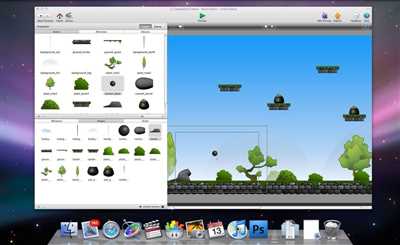
Android apps offer numerous benefits to both programmers and users. Whether you are a beginner or an expert in app development, building Android apps can provide you with valuable programming knowledge and skills. The Android platform is widely used and has a large community of developers, which makes learning and getting support easier.
Android app makers provide simple and intuitive interfaces that allow users to create apps without any coding knowledge. This means that even if you don’t have programming experience, you can still create a powerful app that meets your specific needs. App creators also make it easy to launch your app on the Google Play Store, which gives you access to a wide audience and the potential for success.
Android apps offer a variety of features and capabilities that can greatly enhance user experience. From push notifications to hardware integration, Android apps can do everything. Android app development also allows for the creation of online databases, which enables developers to store and access data on their own servers.
Android apps are designed to be user-friendly and intuitive, which means that users can easily navigate through the app and perform tasks without any confusion. The operating system itself is also known for its clean and intuitive design, which adds to the overall user experience.
Unlike other app development platforms, Android apps offer an open market where developers have the freedom to create and publish their apps without any restrictions. This means that developers have more flexibility in terms of design, features, and monetization strategies. It also means that users have access to a wide variety of apps to choose from.
One of the biggest advantages of Android apps is that they are compatible with a wide range of devices. Whether you’re using a smartphone, tablet, or smart TV, you can download and use Android apps without any issues.
Android apps also offer better hardware integration compared to other platforms. Developers can take advantage of features like GPS, camera, and motion sensors to create innovative and interactive apps.
For business owners, Android apps offer a cost-effective way to reach a larger audience and increase customer engagement. An Android app can serve as a reference point for your brand, allowing customers to easily access information about your products or services. It can also be used to send notifications and updates to customers, keeping them informed and engaged.
In conclusion, Android apps offer a wide range of benefits for both developers and users. Whether you’re looking to develop your own app or simply enjoy the power and versatility of existing Android apps, the possibilities are endless. With its intuitive design, wide market reach, and compatibility with various devices, Android remains one of the best platforms for app development and usage.
What is an Android app builder
An Android app builder is a software or online platform that allows individuals, businesses, and organizations to create their own Android applications without the need for extensive coding knowledge. Even if you have no prior experience in app development or coding, you can still create your own Android app using an app builder.
The Android app builder takes care of the technical processes involved in creating an app, such as coding and design, so you can focus on enhancing the user experiences and implementing your own unique features. It provides a wide variety of templates, fonts, and design options to choose from, allowing you to create a visually appealing app that aligns with your brand strategy.
With an Android app builder, you can create a customized app for your audience, including features like push notifications, in-app purchases, and cloud-based storage. Once the app is ready, you can test it on your own device or run it on an emulator to see how it functions.
Android app builders are designed to be intuitive and user-friendly, allowing you to easily navigate through the app creation process. They typically provide a drag-and-drop interface, where you can add buttons, images, and other elements to your app with just a few clicks. This makes the app building process accessible to individuals with no coding experience.
One of the main advantages of using an Android app builder is the ability to reach a wide audience. Android is the most widely used operating system in the world, and by creating an Android app, you can target a large pool of potential users. Additionally, app builders often provide optimization features to ensure that your app runs smoothly on different Android devices.
Android app builders also offer various monetization options, such as in-app advertisements and in-app purchases, allowing you to generate revenue from your app. You can integrate third-party advertising networks or design your own revenue-generating strategy.
In summary, an Android app builder is a powerful tool that allows anyone, regardless of their coding knowledge, to create their own Android apps. Whether you’re an individual looking to prototype an app idea or a business aiming to enhance customer experiences, an app builder can help you bring your ideas to life.
What is the best Android app builder
When it comes to building Android apps, there are different app builders available in the market. These app builders offer various features and capabilities that cater to the wide range of audience requirements. However, one of the most popular and technically advanced Android app builders is Watson.
Using Watson, you can create fully customized and intuitive app experiences that are optimized for Android platforms. The builder offers a wide range of features that allows you to design, prototype, and build Android apps without any coding skills required.
One of the key advantages of using Watson is its cloud-based approach. This means that all your app design and development processes are managed in the cloud, making it simple and easy to collaborate and share your work with others. Additionally, leveraging cloud services allows you to access and integrate data from various sources, enhancing the functionality of your app.
Watson also provides a range of pre-made templates and design elements that can be customized to match your brand’s logo, website, or any other visual reference. This makes the app customization process even simpler and faster.
While Watson is a great choice for Android app development, there are other popular app builders like BuildCard, which also offers a no-code approach to app creation. Each builder has its own set of features and limitations, so it is important to evaluate your specific needs and choose the one that best suits your app development strategy.
In conclusion, the best Android app builder remains a subjective choice. However, Watson is a powerful and versatile app builder that provides a wide range of features and capabilities to build custom Android apps. Whether you’re a first-time app creator or an experienced developer, Watson will help you get started and create unique app experiences for your target audiences.
Can you create an Android app prototype
Building an Android app prototype without any coding knowledge is now possible thanks to the wide range of online app builders available. These cloud-based services offer intuitive drag-and-drop interfaces that enable anyone, regardless of their technical skills, to create an app for their business or project.
One of the best options available for creating an Android app prototype is a no-code app builder. Unlike traditional app development that requires a significant amount of time, resources, and expertise, no-code builders offer a simple and quick way to get started.
With no-code app builders, you don’t need to worry about writing code or managing complex software. Everything you need to create a prototype is included in the package, from designing the user interface to adding functionality like push notifications, geolocation, and more.
Creating an Android app prototype using a no-code builder means you can leverage pre-built templates, libraries of images, and features to enhance your app’s design and functionality. You can add and customize different screens, menus, and actions without requiring any coding knowledge.
When your app prototype is ready, you can test it on a range of Android devices to ensure its compatibility and performance. No-code app builders typically offer a preview or test mode, allowing you to see how your app will look and function on real devices before you launch it to the public.
Getting started with an Android app prototype builder is as simple as signing up for a cloud-based service. Once you have an account, you can start designing and building your app according to your specific needs and requirements.
While creating an Android app prototype is relatively easy with a no-code builder, it’s important to note that building a successful app requires more than just prototyping. To build a market-ready app that can generate revenue, you’ll need to plan your app’s business model, monetization strategy, and marketing efforts.
So if you’re looking to create an Android app prototype without any coding knowledge, a no-code app builder is your best bet. With an intuitive interface, a range of templates and features, and the ability to test and deploy your app on real devices, you can bring your app idea to life without the need for extensive development knowledge or resources.
Why choose Builderai to create Android apps
Builderai is the best choice for creating Android apps because it offers the most comprehensive and user-friendly platform for app development. Unlike other app creator software that require extensive programming skills and technical knowledge, Builderai allows you to create fully functional Android apps without any coding.
Builderai offers a wide range of features and tools to help you build and customize your Android app. It provides a simple drag-and-drop interface for easy prototyping and designing, including reference templates and pre-designed lists.
With Builderai, you can easily test your app on actual Android devices before distributing it to the market. This cloud-based platform also allows you to stay up-to-date with the latest Android operating systems, including Android Pie’s features.
One of the best features of Builderai is its integration with Watson, IBM’s AI technology. This allows you to add powerful AI capabilities to your Android app, making it more intelligent and responsive to user needs.
Builderai also offers managed hosting and online distribution, so you don’t have to worry about deploying and managing your app on your own. This means you can focus on your business and customers, while Builderai takes care of the technical aspects of app deployment.
Another advantage of using Builderai is its cloud-based infrastructure. This means your app remains up-to-date and available to users, even if there are changes to the Android operating system. You can make updates and modifications to your app without having to distribute an updated version to individual devices.
In comparison to other app makers, Builderai offers the best platform for Android app development. Its intuitive interface, extensive features, and integration with Watson make it the go-to choice for anyone looking to create a professional Android app without the limitations of traditional app development.
How much does it cost to build an Android app
Building an Android app has become a popular choice for many businesses and individuals. With the cloud-based services and powerful hardware that Androids offer, developers can create intuitive and feature-rich applications that can reach a wide range of users.
But when it comes to the cost of building an Android app, there is no one-size-fits-all answer. The cost can vary widely depending on the complexity and features of the app, the time and effort required by the developers, and the resources used in the development process.
One option for building an Android app is to hire a development team to do it for you. This can be a costly option, as you’ll need to pay for the developers’ time and expertise. However, if you don’t have the technical knowledge or time to build the app yourself, this can be a good choice.
Another option is to use an app maker or online app creator. These tools allow you to build your own Android app without the need for coding or technical skills. They usually offer a range of templates, features, and customization options, making it easy to create a customized app that fits your needs. Some popular app makers include Appy Pie, AppMachine, and AppYet.
Before you start building your Android app, it’s important to do some research and planning. Define your goals, target audience, and desired features. Take the time to gather feedback from potential users and stay up to date with the latest trends and best practices in app design.
In addition to the cost of building the app, you’ll also need to consider the cost of launching and promoting it. This can include fees for app stores, marketing and advertising expenses, and any additional services you may need, such as push notifications or analytics.
One way to reduce the cost of building an Android app is to make use of cloud-based services. These services, such as Google Cloud Platform and Amazon Web Services, allow you to offload some of the computational and storage tasks to the cloud, reducing the need for expensive hardware and technical expertise.
Another cost-saving option is to use open-source libraries and frameworks. These libraries and frameworks are free to use and can provide a solid foundation for your app development. They often come with a vast community of developers who can offer support and contribute to the project.
When it comes to the cost of building an Android app, it’s important to remember that it’s not just about the price tag. The success of your app will depend on factors such as its quality, user experience, and marketing efforts. So, regardless of the cost, make sure you focus on creating a well-designed and user-friendly app that meets the needs of your target audience.
How can I create an Android app without coding
In today’s digital age, creating an Android app without any coding knowledge has become a reality. With the powerful tools and resources available, anyone can turn their ideas into a fully functional app. This article explores how you can create an Android app without coding.
One of the best options for creating an Android app without coding is to use an app builder or maker. These platforms offer a range of features and functionalities that make app development an easy and hassle-free process. When choosing an app builder, it’s important to consider factors such as cost, ease of use, and the range of features it offers.
Many app builders offer an online platform where you can sign up and get started with your app creation. This eliminates the need for any complex setup processes or the requirement to download and install software on your device. With just a few clicks, you can start designing and developing your app.
One popular online app builder is Appy Pie’s App Maker. It offers a no-code platform that allows users to create stunning apps without any coding knowledge. The platform offers a drag-and-drop design tool, where you can choose from a range of pre-defined templates and customize them according to your own preferences. You can add images, change fonts, and even create your own logo to make your app truly unique.
When it comes to enhancing the functionality of your app, app builders like Appy Pie offer a range of features. These include push notifications, in-app purchases, integration with social media platforms, and the ability to distribute your app to various app stores. With these features, you can create a powerful app that caters to the needs of your audience.
One of the key advantages of using an app builder is the time and cost savings it offers. Developing an app from scratch can be a long and costly process, requiring developers with in-depth knowledge of coding languages like Java or Kotlin. However, with an app builder, everything is managed through the platform, and you can create an app in a fraction of the time it would take using traditional methods.
In conclusion, creating an Android app without coding is now more accessible than ever. By using an app builder like Appy Pie’s App Maker, you can bring your ideas to life, develop a powerful app, and reach your target audience. So, if you want to create your own Android app but have no coding experience, give app builders a try and experience the world of app development.

